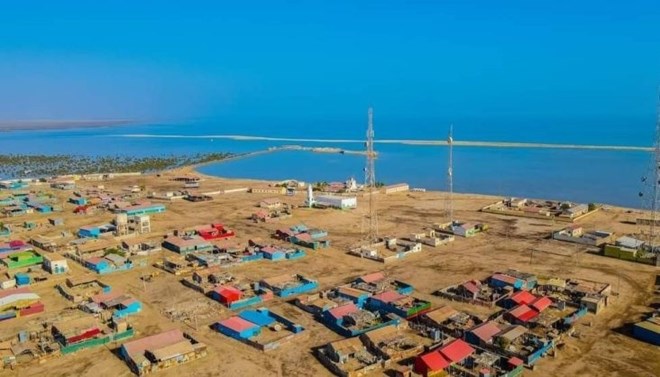
Tuesday July 23, 2024
The historic Red Sea port of Zeila (Seylac in Somali) in Somaliland, which is a focal point of Ethiopia's interest as part of the Memorandum of Understanding (MoU) between the two nations. The agreement aims to provide Ethiopia with vital sea access through this strategic port in exchange for potential recognition of Somaliland's sovereignty and economic cooperation. (Wikimedia Commons/CC/ Abdihakimper)
Hargeisa (HOL) — Somaliland has doubled down on its commitment to a contentious Memorandum of Understanding (MoU) with Ethiopia, promising economic gains and international recognition while sparking fierce opposition from Mogadishu and regional players.
"The Government of the Republic of Somaliland reaffirms the significance of the Memorandum of Understanding (MoU) between Somaliland and Ethiopia, emphasizing its focus on mutual benefits and cooperative efforts between the two sisterly neighbouring nations," the Ministry of Foreign Affairs of Somaliland stated on Tuesday.
Since declaring its independence from Somalia in 1991, the breakaway Republic of Somaliland has sought stability, democracy, and self-governance. Somaliland describes Mogadishu as lacking democratic legitimacy due to its selection process.
Since its 1993 split from Eritrea, Ethiopia has been landlocked and seeks maritime access to reduce its dependence on Djibouti. The MoU includes provisions for Ethiopia to gain sea access and establish a military base in Somaliland. In return, Somaliland anticipates Ethiopia's potential recognition of its sovereignty, although the latter has sometimes been unclear about the deal's specifics.
The Mogadishu administration strongly opposes the Somaliland-Ethiopia deal, considering it a violation of Somalia's sovereignty and territorial integrity. President Mohamoud nullified the MoU shortly after it was signed, accusing Ethiopia of attempting to annex Somali territory. Diplomatic relations between Somalia and Ethiopia have deteriorated, with Somalia expelling Ethiopia's Ambassador to Mogadishu and ordering the closure of Ethiopian consulates in Hargeisa and Garowe. Backchannels established by Kenya and Turkey to mediate the dispute have been unsuccessful, with Somalia stating that Ethiopia must rescind the MoU before any talks can begin.
Meanwhile, officials in Somaliland claimed that Ethiopia upgraded its consular office in Hargeisa to full embassy status in late May.
International organizations, including the African Union (AU), the Organization of Islamic Cooperation (OIC), and the Arab Economic Forum, have also opposed the deal. The swift condemnation has reportedly led Ethiopia's Prime Minister Abiy Ahmed to reconsider it.
Critics argue that the agreement could destabilize the region, potentially escalating conflict and allowing militant groups like Al-Shabaab to exploit the situation.
Somaliland President Muse Bihi Abdi promised that the deal would help secure freedom of navigation in the Gulf of Aden and the Red Sea, regions prone to attacks by Houthi rebels and other threats. "The historic memorandum of understanding between Somaliland and Ethiopia will provide us with a clear pathway towards international recognition," he said from Hargeisa.
Officials in Hargeisa anticipate a finalized agreement soon. Somaliland's Minister of Information, Ali Mohamed Hassan (Ali Marehan), hinted this week at the upcoming implementation of the Somaliland-Ethiopia agreement.